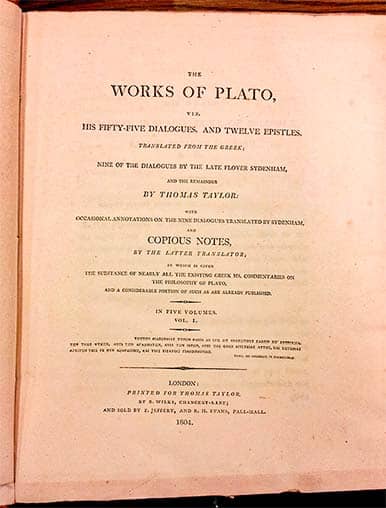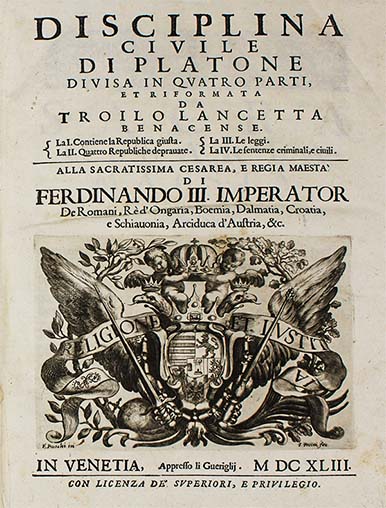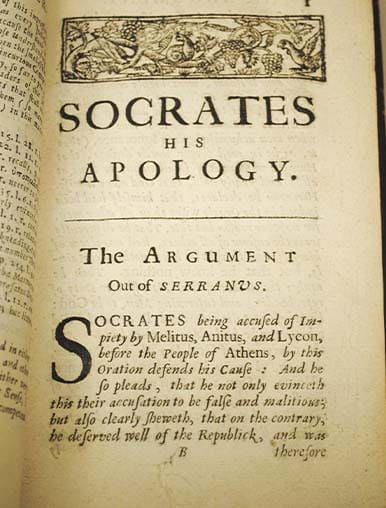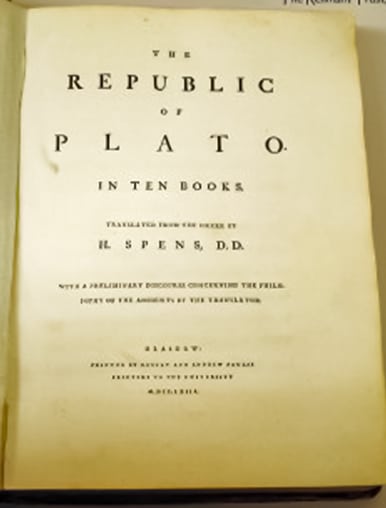REMNANT TRUST COLLECTION
Plato
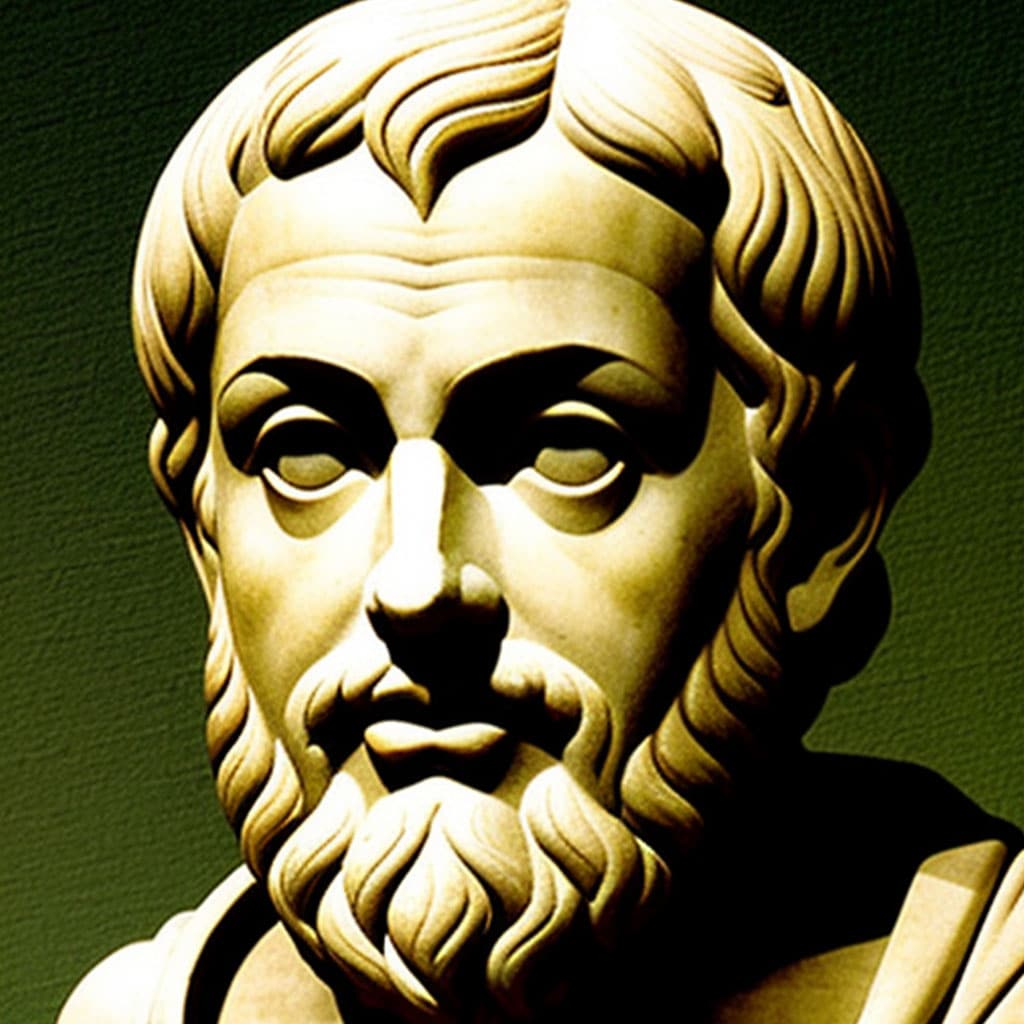
“Mankind must have laws, and conform to them, or their life would be as bad as that of the most savage beast. And the reason for this is that no man’s nature is able to know what is best for human society; or knowing, always able and willing to do what is best.”
– Plato
b. 427 BCE – d. 347 BCE
The son of a wealthy and noble family, Plato (427-347 B.C.) was preparing for a career in politics when the trial and eventual execution of Socrates (399 B.C.) changed the course of his life. He abandoned his political career and turned to philosophy, opening a school on the outskirts of Athens dedicated to the Socratic search for wisdom. Plato’s school, then known as the Academy, was the first university in western history and operated from 387 B.C. until A.D. 529, when it was closed by Justinian.
To understand Socrates is the most necessary preliminary to the study of Plato. In his books, Plato modestly puts his wisely maxims into the mouth of his master, and just how much Plato and how much Socrates there is in the “Dialogues,” we will never know. Wouldn’t it have been worth our while to travel miles to see these friends—the one old, bald, short, fat, squint-eyed, barefoot, and the other with all the poise of aristocratic youth—tall, courtly and handsome, wearing his robe with easy, regal grace. And so they have walked and talked down the centuries, side by side, the most perfect example that can be named of that fine affection which often exists between teacher and scholar.

